False Physics Major Dichotomy: Theorist or Experimentalist?
Many physics majors believe that pursuing a Ph.D. in physics requires they make a choice between theory and experiment. Due to my weaknesses in math, I thought I had chosen to be an experimentalist when I chose an experimentalist as my mentor for grad school. But as I chased interesting projects, I ended up publishing a number of theory papers. As I look back on the first half of my career, I am surprised to find that my relatively small number of theory papers have garnered more citations than all of my experimental papers combined.
How does someone who thinks he (or she) is too weak in math to be a theorist end up doing productive work in theory? We’ll address this question, but first, let’s consider how a few famous scientists have been productive in both theory and experiment.
Isaac Newton is best known for the laws of mechanics and gravitation that bear his name, which was published in one of the most important theoretical works in history, “The Mathematical Principles of Natural Philosophy.” Few realize that Newton’s theoretical work was only a sideline to his main interests in experimental chemistry, especially alchemy. Newton also spent a lot of time in the experimental study of optics and published a seminal work in the field.
Louis Pasteur’s career demonstrates the advantage experimentalists have in developing new theories and important refinements because they have first access to key data for doing so. Pasteur’s experimental work on tartaric acid empowered important theoretical contributions to understanding molecular chirality, considered by some to be his greatest scientific contributions. Likewise, his experimental work on fermentation empowered new insights and important refinements to the germ theory of disease.
Michael Faraday began as an experimental chemist with Humphrey Davies. His experimental data on electromagnetic induction led him to devise the early theoretical framework of electromagnetic field theory and lines of force. It is less well known that his induction experiments were inspired by his work on the theory of sound with Charles Wheatstone. Faraday’s qualitative theories were given rigorous mathematical expression by James Clerk Maxwell.
Linus Pauling is another notable example of a productive switch hitter in both experiment and theory. His Ph.D. work was on experimental X-ray diffraction from crystals, but he had a lot of training in mathematical physics also. Consequently, he was able to quickly grasp the foundations of quantum mechanics and made many key theoretical contributions to quantum chemistry, especially regarding the nature of the chemical bond.
My own path to productive work, in theory, was less profound. The planned experiment of laser spectroscopy in diamagnetic hydrogen wasn’t working, so I had a lot of time to write computer programs to integrate differential equations computing classical trajectories and perform quantum computations. I was also able to put together code pieces written by other graduate students over the years to leverage more powerful computers to extend quantum computations to higher energy levels and begin the computational application of constant scaled energy spectroscopy, a technique that had originally been applied experimentally. Since the computational techniques I was using had already been extensively validated experimentally, I was able to test important hypotheses regarding the relationship of quantum and classical dynamics of chaotic systems, and I was also able to provide key quantum calculations for testing and refining newly emerging semi-classical theories. I leveraged my strengths in programming to make up for my weaknesses in math in order to test both qualitative and quantitative hypotheses.
After September 11, 2001, my wife (and collaborator) and I switched gears and began more militarily relevant work in ballistics and blast. Entering new fields, we read larges volumes of literature and tried to synthesize ideas through conversations and thought experiments. My inclination toward thought experiments was built by studying relativity and quantum mechanics, but it can be very fruitful in other fields as well. This may be why physicists can be productive theorists when entering other fields.
The scholarly search engines were more rudimentary in the first decade of the 21st century, so we occasionally had to travel some distance to university libraries to find key pieces of emerging theoretical puzzles. Attending conferences and debating the issues with others was important, but the motivation and sense of urgency were increased by personal interaction with servicemen and women while my wife served on the West Point faculty. Our initial intent was for our contributions to be through careful experimental tests of important ideas, but in the process of coming up to the learning curve in these new fields, we wrote several theoretical papers that proved useful to a wide audience.
From a practical point of view, the progression from an experimentalist to a theorist is more common for a variety of reasons: 1) Experiments cost money, sometimes a lot of money. An experimentalist running out of money and transitioning to theory is more likely than someone who starts as a theorist coming into sufficient resources to bootstrap an experimental research program. 2) There are a lot of practical skills that are indispensable to be useful in a laboratory. Gaining the necessary familiarity with high vacuum systems, electronics, and instrumentation takes a long time if one has reached the Ph.D. level in theory without having acquired a working knowledge in key areas. 3) Designing experiments and writing grants requires at least a rudimentary working knowledge of the applicable theories. Crafting theories and refining calculations does not require a rudimentary working knowledge of laboratories.
In today’s environment of data sharing and large data repositories of all kinds, a good quantitative toolbox empowers well-trained physicists (both experimentalists and theorists) to quickly be productive in other fields through modeling, analysis, and consideration of data. Several of our important theory papers have focused on re-analyzing existing data sets to meet urgent needs, for example, by estimating blast injury thresholds before there was time to conduct new experiments. Other papers were less urgent but resulted from applying quantitative skills to interesting problems in areas ranging from fisheries science to ecology.
I grew up working in bars and restaurants in New Orleans and viewed education as a path to escape menial and dangerous work environments, majoring in Physics at LSU. After being a finalist for the Rhodes Scholarship I was offered graduate research fellowships from both Princeton and MIT, completing a PhD in Physics from MIT in 1995. I have published papers in theoretical astrophysics, experimental atomic physics, chaos theory, quantum theory, acoustics, ballistics, traumatic brain injury, epistemology, and education.
My philosophy of education emphasizes the tremendous potential for accomplishment in each individual and that achieving that potential requires efforts in a broad range of disciplines including music, art, poetry, history, literature, science, math, and athletics. As a younger man, I enjoyed playing basketball and Ultimate. Now I play tennis and mountain bike 2000 miles a year.

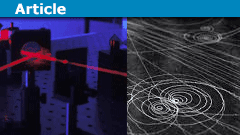
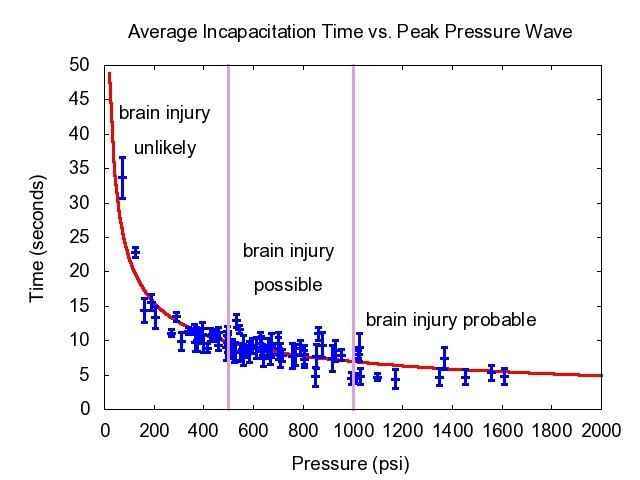

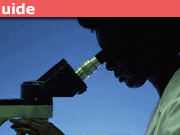
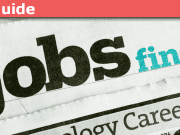
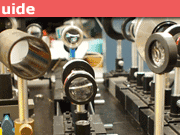


In the specialty I work in, there is very little if not any difference between the two. We are forced to work both during the course of our daily duties. Now, there are some of us who prefer to write code and do theory more than work on the shop floor or doing test support. Others I wouldn't trust to write one line of code, but do fine working with their hands, but we all run code to perform trade studies and analysis.
During the past 4 years I have written code, done theory, worked on the shop floor supporting a test fixture build and spent numerous hours supporting a test in a test range (averaging 70 hours a week for 5-6 weeks at a time). The others in the group have specialized some, but still do a number of the above things, maybe not as much as I do.
everything must belong to one part or the otherWhile this insights post is about the second bullet point, I don't think every person in the world is an experimentalist or a theorist.
https://en.wikipedia.org/wiki/Dichotomy
A dichotomy is a partition of a whole (or a set) into two parts (subsets) that are:
A false dichotomy is an informal fallacy consisting of a supposed dichotomy which fails one or both of the conditions: it is not jointly exhaustive and/or not mutually exclusive.
So, it sounds almost suspiciously like, "In theory there is no dichotomy between theorists and experimentalists…" :wink:
A false dichotomy only needs a small number of counter examples to successfully falsify the dichotomy.
It may be in some fields, the people in the field maintain the status quo and there is no crossover between theorists and experimentalists.
But the absence of crossover doesn't mean it's not possible. More likely, it means that funding opportunities and hiring and promotion practices tend to discourage it. But this is true in many fields.
AerospaceAre you sure that the dichotomy is so completely false?
To take one example I am familiar with, there's a tremendous amount of difference between what a theorist in geophysical fluid dynamics does and what a field experimentalist does.
Aerospace
Yes I am, but in my line of work, there isn't a distinction, the theorist will spend time in the lab, in the test range, on a shop floor building/supervising the build of a test article. The experimental just spend less time writing code.OK, but an experimentalist is not going to call you his lab rat :)
What is your line of work?
You must be a theorist.
Yes I am, but in my line of work, there isn't a distinction, the theorist will spend time in the lab, in the test range, on a shop floor building/supervising the build of a test article. The experimental just spend less time writing code.
No, not reduced anxiety, they get all hyped up over nothing and hate it when i move their cheese…
Lab rats, range rats, sometimes they are called shop floor fairies, all the same breed….You must be a theorist.
If actual rats understand this analogy, the experiment was a huge success. Do they have reduced anxiety as well? ;)
I know, wrong species…No, not reduced anxiety, they get all hyped up over nothing and hate it when i move their cheese…
Lab rats, range rats, sometimes they are called shop floor fairies, all the same breed….
Another comment, I have to tell my lab rats all the time, good measurements are like fine wine/beer/whiskey/whatever you drink preference is, they both take time to make wellIf actual rats understand this analogy, the experiment was a huge success. Do they have reduced anxiety as well? ;)
I know, wrong species…
Another comment, I have to tell my lab rats all the time, good measurements are like fine wine/beer/whiskey/whatever you drink preference is, they both take time to make well
I'm a nightmare in labs. Anytime we're doing practical work in the labs (I'm in HS right now), I end up being the slowest and most clumsy student. And this is not restricted to only Physics; I'm equally terrible in Biology and Chemistry laboratories. I have trouble setting up the apparatus correctly as shown in the class worksheets, and by the time I finish drawing a table of results for question 1, others are usually done collecting data, drawing graphs of the data and writing interpretations of the graphs for question 2. In short, it's not very pretty for me :(Speed isn't of the essence in actual laboratory work, most of the time. Nor is setting up an apparatus based on some lab manual. In actual lab work, you would set up the apparatus based on your understanding of how each piece works and its importance to the setup, and you would do it slowly and carefully, maybe over the course of a day or two or more. The artificial environment of a high school or college lab class has very little to do with an actual working lab, any more than your physics homework problems are connected to the work of a theorist.
In short, just don't shut the door and miss out on the opportunity to learn and practice and grow. Experimenting is hardly an inborn talent.
I will admit, I had the same attitude in college: I did *not* want to be an experimentalist because I didn't like how carefully you had to set everything up and read everything off: I didn't think I was very good at that fine work. But that's more of a problem in school labs, where they have to make do with meter sticks and all of that. In professional labs, they're not going to leave that sort of thing to chance: they will use devices and techniques that guarantee a certain amount of precision. If I'd known or thought of that, maybe I wouldn't have shut so many doors myself. (*waves cane* Don't be like me, sonny!)
Why are you obsessing now, your just in high school…… not being fast when you are a teenager in most cases isn't going to significantly affect whether or not you can learn down the roadThat's a good point. I wasn't a very good experimentalist in high school either, nor did I demonstrate much in my college lab courses.
I kept working at it. You'll be surprised at what you can do if you keep working at it with a positive attitude. Don't let your current view of what you are good at hinder what you can become with consistent efforts over time.
Sorry for the late reply.
It's the former. I'm a nightmare in labs. Anytime we're doing practical work in the labs (I'm in HS right now), I end up being the slowest and most clumsy student. And this is not restricted to only Physics; I'm equally terrible in Biology and Chemistry laboratories. I have trouble setting up the apparatus correctly as shown in the class worksheets, and by the time I finish drawing a table of results for question 1, others are usually done collecting data, drawing graphs of the data and writing interpretations of the graphs for question 2. In short, it's not very pretty for me :(
I know, and this is exactly what has me worried, although mfb's reply seems reassuring :woot:
@Dr. Courtney I see. So I can still be involved in the planning aspect for experiments as a theorist without actually doing the thing in the lab myself, correct?Why are you obsessing now, your just in high school…… not being fast when you are a teenager in most cases isn't going to significantly affect whether or not you can learn down the road
@Dr. Courtney I see. So I can still be involved in the planning aspect for experiments as a theorist without actually doing the thing in the lab myself, correct?Yes, but don't forget that for everything you are unwilling to do or not very good at, you need to be better at other things for the PI and other collaborators to decide on including you. You need strengths that other team members don't have. An experimental group might not decide to include a theorist if the experimentalists already in the group can handle all of the required tasks. The more abilities one brings to a group, the more likely one will be included enthusiastically.
Sorry for the late reply.
@mfb That's nice. I don't really know which field I'll go into after completing college, but particle physics has always attracted me :P
Besides, I'm the kind of person who is better suited at making sense of data, rather than accurately collecting data itself.
Can you be SURE that you're "horrible"? Maybe you had a horrible experience or bad teachers.It's the former. I'm a nightmare in labs. Anytime we're doing practical work in the labs (I'm in HS right now), I end up being the slowest and most clumsy student. And this is not restricted to only Physics; I'm equally terrible in Biology and Chemistry laboratories. I have trouble setting up the apparatus correctly as shown in the class worksheets, and by the time I finish drawing a table of results for question 1, others are usually done collecting data, drawing graphs of the data and writing interpretations of the graphs for question 2. In short, it's not very pretty for me :(
3) Once you make it into the real world and need a job, you might not be able to afford to be so choosy.I know, and this is exactly what has me worried, although mfb's reply seems reassuring :woot:
@Dr. Courtney I see. So I can still be involved in the planning aspect for experiments as a theorist without actually doing the thing in the lab myself, correct?
Great article! But what would you say to those who are good at theory but horrible at (and therefore not particularly inclined toward) practical work?I'd say, 1) don't rule out any positions JUST because they're experimental. If the people are great and the project is interesting, give it a try.
2) Can you be SURE that you're "horrible"? Maybe you had a horrible experience or bad teachers. Again, if you are working with great people on an interesting project, you may be motivated to push past whatever blocks you have, and with their help you may discover that you are at least competent at "practical work". And then, even if you go on to be a theorist in the future, you will at least be able to read experimental papers and talk to experimentalists from a position of understanding.
3) Once you make it into the real world and need a job, you might not be able to afford to be so choosy.
Take me for example.
I did my Ph.D. on a bubble chamber experiment, joining it near the end of the data-collection phase. I was supposed to go to Fermilab for the last run, but a week or two before, Fermilab decided we had enough pictures, so the run was canceled. Practically all my work was programming, except for scanning some film.
I also went to SLAC for a few weeks to help with a non-bubble-chamber experiment that one of the profs in my research group was working with. So I did get some "nuts and bolts" experience.
Great article! But what would you say to those who are good at theory but horrible at (and therefore not particularly inclined toward) practical work?You can work in experimental physics without any lab work. In particle physics, detector simulation, data analysis and so on are part of experimental physics – purely done with computers.
Great article! But what would you say to those who are good at theory but horrible at (and therefore not particularly inclined toward) practical work?I'd say to keep your eyes open for an opportunity. We have a colleague who is joining us on some experiments this week who has published mostly theoretical work in her career. We initiated the collaborations because of her theoretical strengths, but we invited her into the lab because we like for all the collaborators to have as much hands on the experiment as possible to appreciate how everything really works in the lab. This has been of great benefit when it comes time to brainstorm new experiments and also seems to get the creativity flowing on the modelling side. As it happens, we have not yet had a big breakthrough on the theory or modeling side, but her contributions on the experimental side have been significant and tangible.
Experimentalists are usually happy enough to let theorists collaborate to some degree, especially if they need help modelling or interpreting the data. But a persistent theorist would usually be allowed into the lab also. Many hands make light work and extra hands can often be a blessing when the experiment is being run. Theorists are sometimes a bit unrealistic about the relative ease of different experiments they might think of. Nothing imparts reality and an accurate view of experimental opportunities and challenges like participation in the experiments.
Great article! But what would you say to those who are good at theory but horrible at (and therefore not particularly inclined toward) practical work?
When I went into grad school, I had such a chip on my shoulder about not wanting to do experiment, that I wouldn't ask to join a strong research group that was recommended to me, simply because the PI was an experimentalist. For all I know, they needed a resident theorist; I didn't even bother to find out. Instead, I ended up as the only student of an advisor who wasn't interested in sending me to conferences or helping me network in any way, and I've suffered for it.So if you're a young physicist: explore every option! Don't get caught up with labels. (That goes for different fields too: so what if your research is more like chemistry or mathematics or biology, if you like it?)
Dr. Courtney, this is great! Thanks for posting this!
I often find my self trying to think like Johannes Kepler when I approach a new theoretical problem with lots of data that no one has really made satisfactory sense of. In many ways, Kepler's Laws were the first big theoretical breakthrough in physics, providing more than ample illustration of what Eugene Wigner described as the unreasonable effectiveness of mathematics in the natural sciences.
In our enthusiasm, we often forget that there was a 13 year gap between the discovery and publication of Kepler's first two laws and Kepler's third law, which really was the key to Newton's law of universal gravitation.
I was greatly encouraged by a philosophy professor in college who, in an advanced course on Plato's dialogues, encouraged his students to keep playing with the blocks, that is, keep turning over ideas in one's mind and comparing the ideas with the emperical facts from different perspectives.
In my theoretical pursuits, just like Kepler, I spend long hours refining ideas, mining for data, comparing models and data, recognizing failure, and returning to the drawing board. I may not be a very good theorist, but I am a persistent one, exercising faith that there is a mathematical model to make sense of this data …
Nice article on a very common topic!